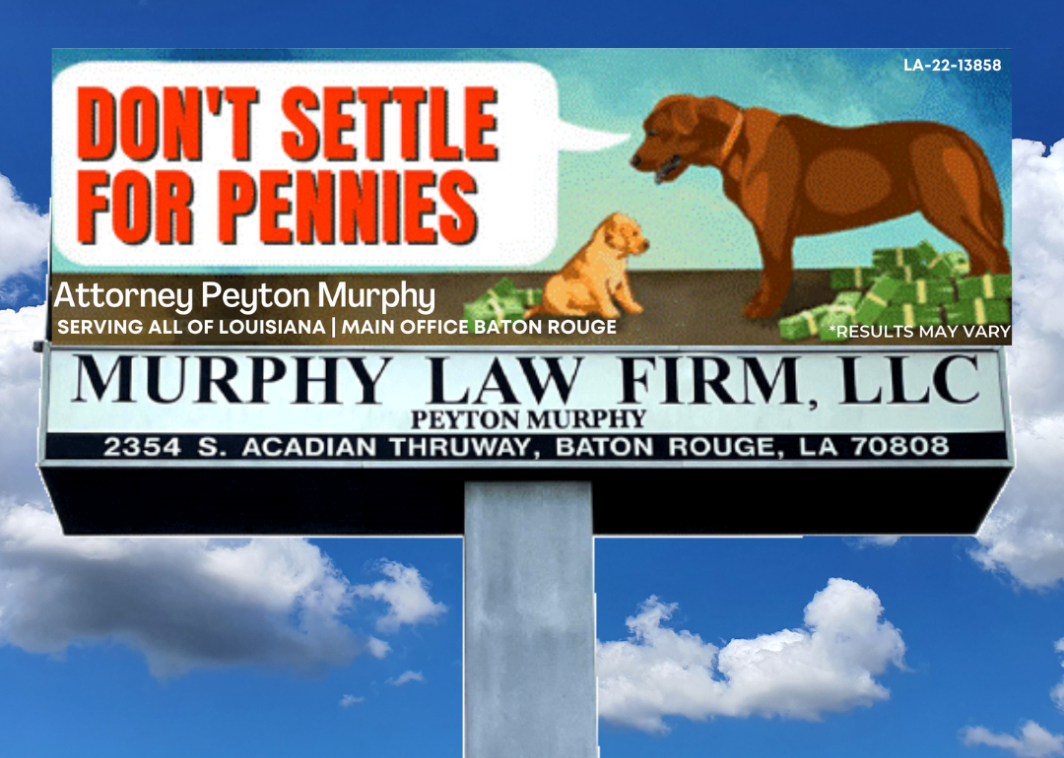What to Do After Car Accident in Louisiana?
News and Articles
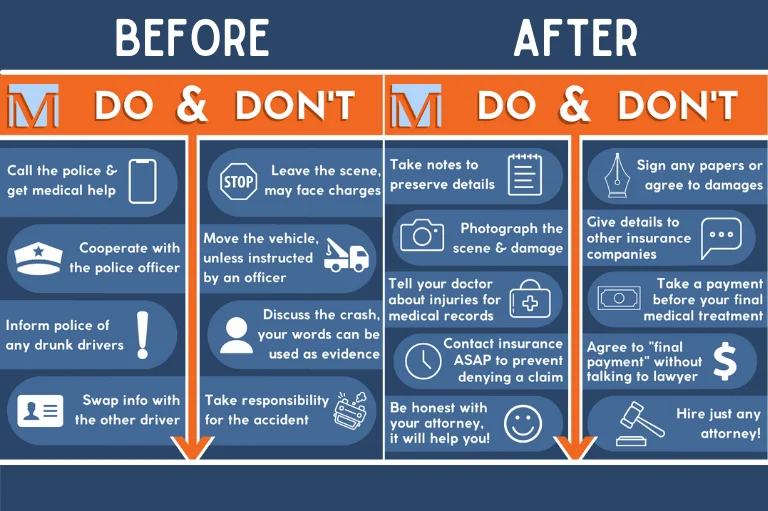
What To Do After a Car Accident in Louisiana Whether You Are at Fault or Not?
Any time you are in a car accident, it’s stressful and can be hard to keep a clear head. However, there are many important decisions that must be made in the immediate aftermath.
Whether you are at fault for the crash or not, there are certain steps that you need to take in order to ensure the safety of everyone involved and to protect yourself physically, financially, and legally. This guide will help you through those important decisions of what to do after a car accident.
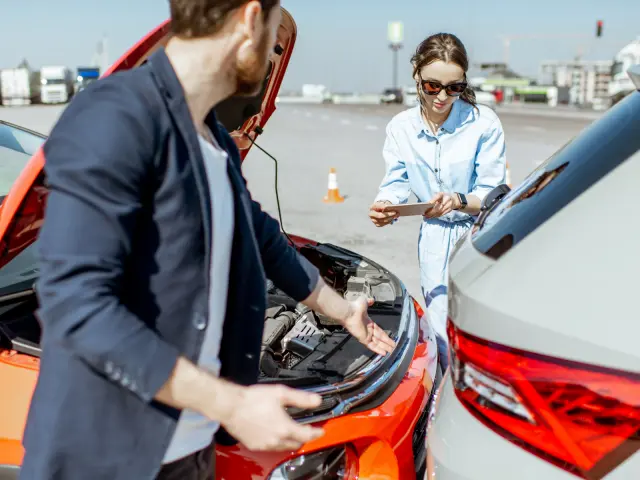
The Do’s & Dont’s of a Traffic Accident in Louisiana
At the Scene of the Car Crash
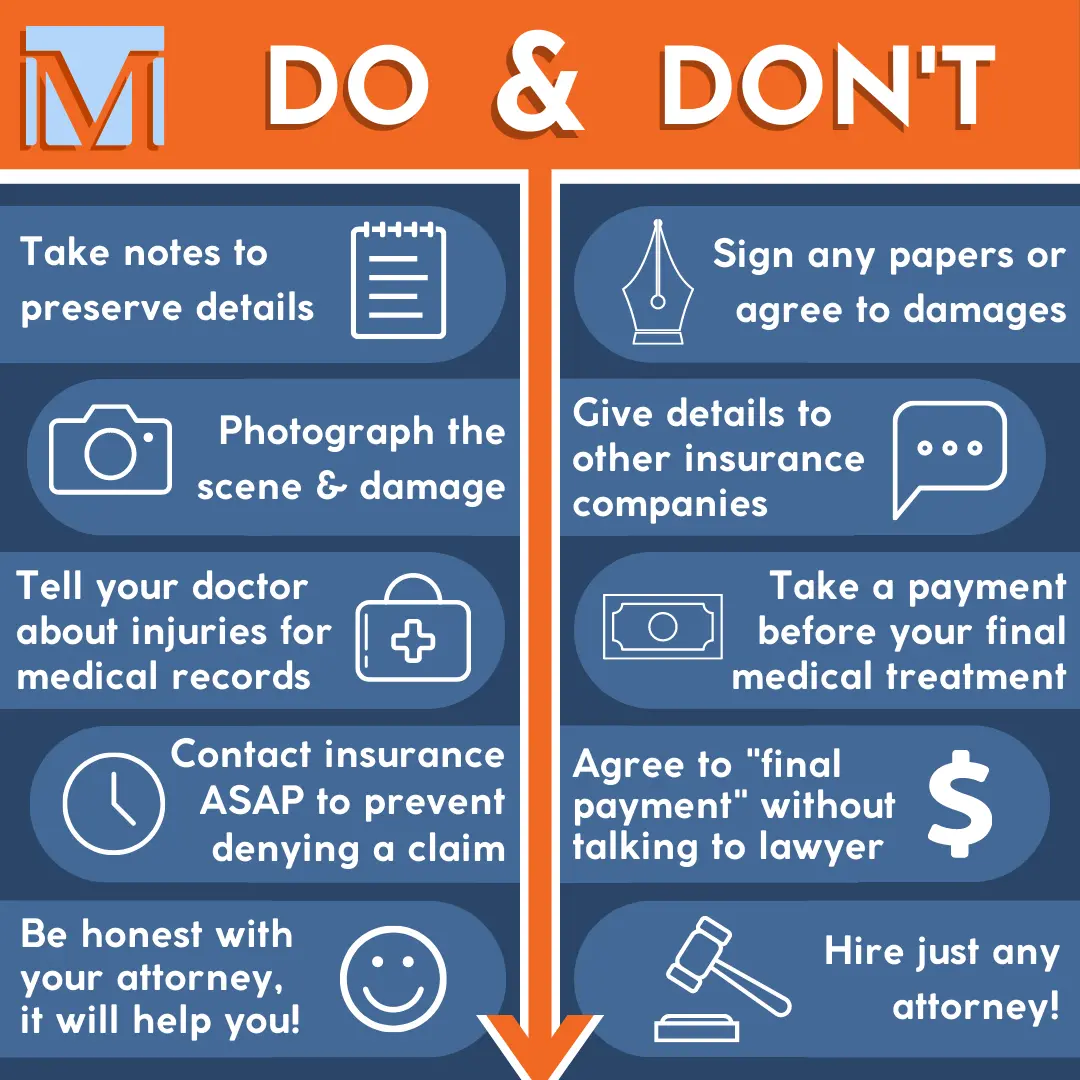
After the Car Crash
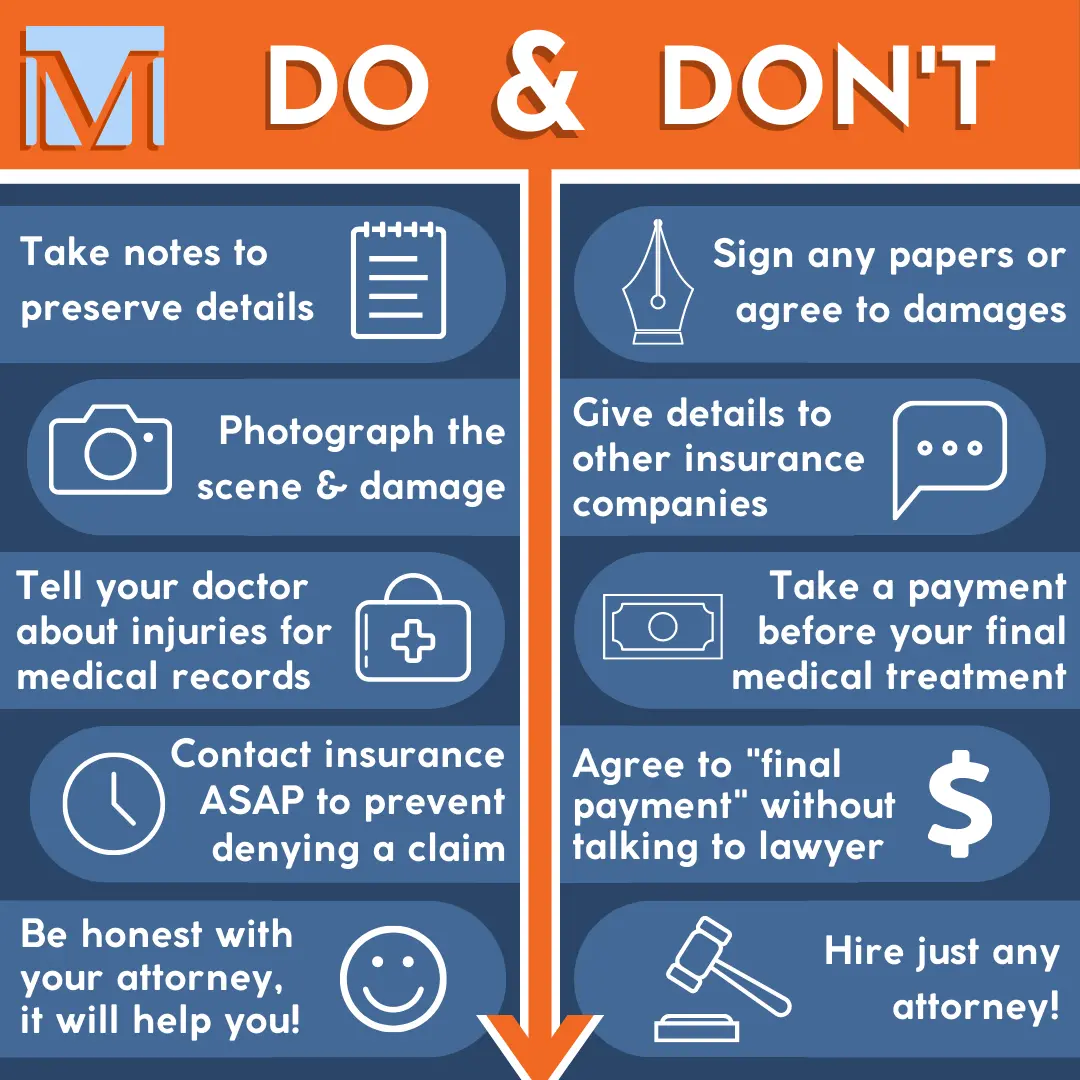
Steps to Take After a Car Crash in Louisiana
- Check on ALL parties involved. This can be difficult to prioritize immediately after a car wreck, especially because tempers may be high following the crash, but this is the first and most important step. Check your own body and ensure you haven’t received any serious injuries and then check on everyone else involved in the accident. If someone has been physically harmed, you need to call 911 immediately.
- Take several pictures and detailed notes in a timely manner. With all the adrenaline that flows through your body after a car accident, you are bound to forget important details about exactly what happened. To help you and your potential case, take pictures of all the vehicles involved and any relevant road issues or signage. Also jot down detailed notes of everything you remember about the crash. If you don’t have a pen, use your phone to take notes.
- Call the police. This may have already been done by this point, but if not, make sure the police are notified. Be sure to stay by your car while you wait for the officers to arrive. Once they arrive, ask to fill out a car accident report and be as detailed as you can be about what occurred.
- Seek Medical Attention. If you haven’t spoken to a medic, seek one out and get treatment as needed. With all the sudden trauma that can accompany a car crash, it’s easy to overlook a potential injury on you or your passengers involved in the accident.
- Talk to Witnesses. Once you’ve spoken to the medical staff and officers, seek out any witnesses that may be able to give a different perspective of the crash. Take down their name, number, email, and any important details they may have that could help with determining fault.
- Take Additional Pictures. Take more photos of the car, witnesses, and anything else that might be relevant. Also, be sure to take a picture of the vehicle as it is loaded on the tow truck.
- Call Your Insurance Company. Get in touch with your insurer and open a claim on the accident. Whether the car accident was your fault or not, it is important to keep your insurance company informed. But, be careful. Do not give a recorded statement.
- Get in Touch with a Car Accident Attorney. If you have been injured, or there is serious damage to property, speak with a Baton Rouge car accident lawyer about your options and make sure to be advised before you sign anything with any insurance company. You should follow this step whether or not you are considered at fault.
- Monitor Your Health in the Upcoming Days. Some injuries from car crashes can take several days to appear. Be sure to monitor any health changes and take pictures of lacerations and bruises from the accident.
What to Do After an Auto Accident Checklist
If you’ve ever been in a car accident, you’ve probably experienced a rush of emotions all at once: fear for your or your passengers’ safety, apprehension about the incoming costs to repair your car, and frustration at the other driver can be just a few of them. Your stress probably shot through the roof, and you might’ve found it hard to keep a clear head and remember the many steps to take in the aftermath of a car wreck with our What to Do After a Car Accident Checklist.
After you’re involved in a collision on the road or highway, there are a number of dos and don’ts to follow, in order to protect yourself legally, financially, and physically. Below, we’ll discuss the best – and worst – actions you can take during and after the accident, as well as in the following weeks and months.
At the Scene of the Crash
The first thing you should do after a crash is make sure you and everyone in your vehicle are without any immediate medical emergencies. After that, get out of your vehicle and call the police, as well as an ambulance if needed.
Do not leave the scene of the crash. You could be charged with a hit and run or even face charges if you do, even if you have somewhere important to be. In addition, do not move your vehicle or allow the other driver to move theirs, unless the police officer who arrives tells you to. The positions of the vehicles will be used as evidence for fault.
When the police officer or EMTs arrive on the scene, follow their instructions politely and completely. They’ll ask for your insurance information, driver’s license, and your car’s registration. Have that paperwork ready for when the police get there to make the proceedings as smooth as possible. In addition, inform the police of any drunk drivers, since it might not be immediately obvious to a third party.
When you get the chance, do swap your insurance information with the other driver, but don’t discuss the crash or what happened. Your words can be used as evidence by their insurance company. Whatever you do, never take responsibility for the accident, including saying, “I’m sorry.” In many jurisdictions, those words can be claimed as an admission of guilt!
Aftermath of the Crash
After the crash, make sure to take as detailed notes as you can, describing the scene, the people involved, and the damages to all vehicles. If you can, take pictures of the damage and of the scene. These descriptions and images can be used in court as evidence.
Along similar lines, don’t sign any papers you’re presented with or agree to any damages without talking to an experienced lawyer. Don’t give any details to the other insurance company yourself, since they might ask leading questions designed to make you look bad. In addition, don’t agree to any payment before your final medical treatment – you can’t be sure how much treatment might cost.
You should contact your own insurance as soon as possible after an accident, to prevent them denying a claim on your behalf. Also, go to your doctor to discuss your injuries and get your medical records, which can also be used in court.
Hire an Experienced Car Accident Attorney in Baton Rouge
Finally, make sure you hire a car accident lawyer who’s experienced enough to know what you deserve, as well as fierce enough to fight for your rights in court if need be. The car accident attorneys at Murphy Law Firm in Baton Rouge and St. Francisville have worked car accident claims in Louisiana for years, so we know how to work the system to your benefit. Plus, we know what it’s like to deal with insurance companies and other businesses that are reluctant to pay out, and we know how to make sure they pay their fair share for your medical bills, lost wages, and any other physical or emotional trauma. You deserve compensation for you injuries, and we will fight to get it for you!
If you’ve been injured in a car accident, give the injury lawyers at Murphy a call! We’re so dedicated to helping you with your claim, we won’t even take a fee unless we win. Give us a call or schedule your free consultation online today!



